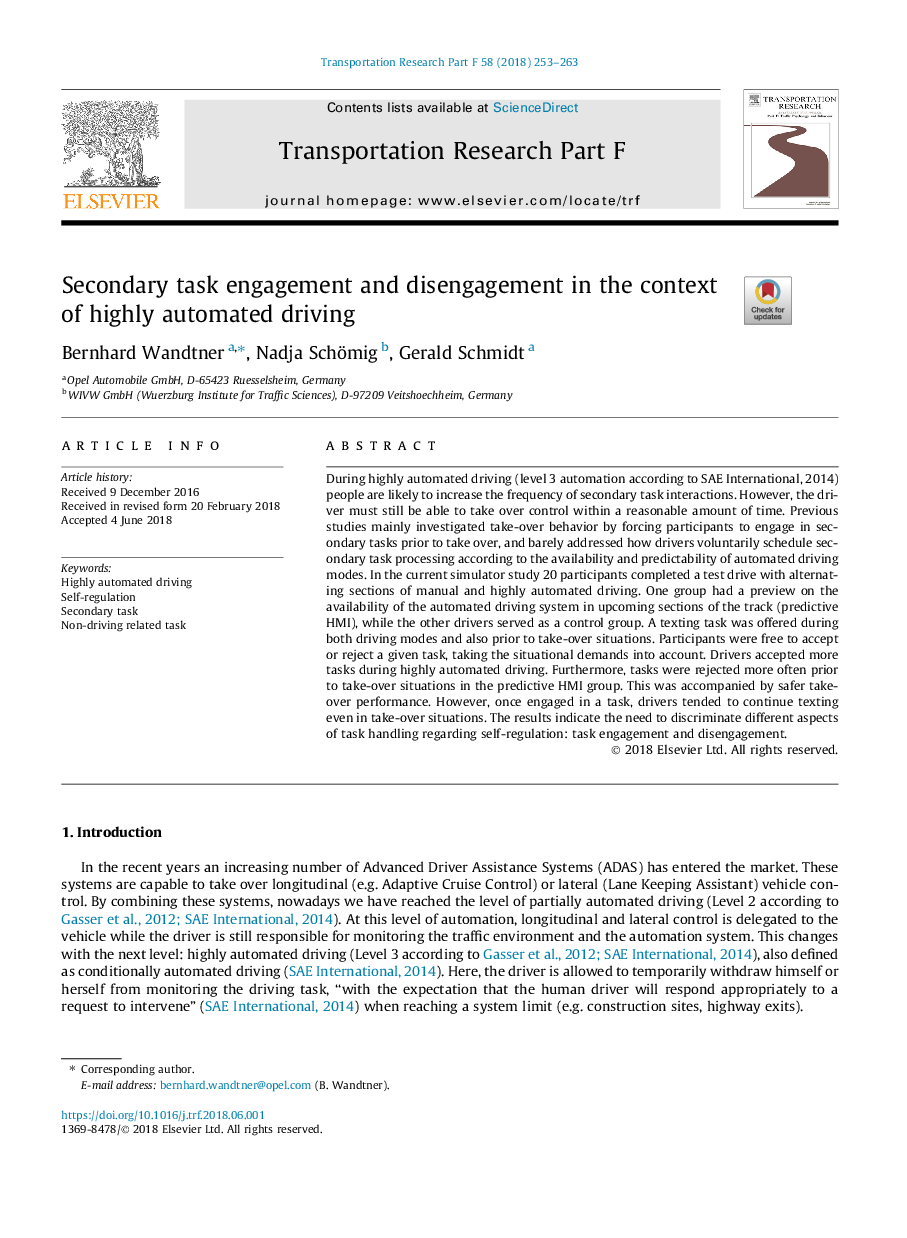| کد مقاله | کد نشریه | سال انتشار | مقاله انگلیسی | نسخه تمام متن |
|---|---|---|---|---|
| 7257533 | 1472429 | 2018 | 11 صفحه PDF | دانلود رایگان |
عنوان انگلیسی مقاله ISI
Secondary task engagement and disengagement in the context of highly automated driving
ترجمه فارسی عنوان
مشارکت و تعویض کار دوم در زمینه رانندگی بسیار اتوماتیک
دانلود مقاله + سفارش ترجمه
دانلود مقاله ISI انگلیسی
رایگان برای ایرانیان
کلمات کلیدی
رانندگی بسیار اتوماتیک، خود تنظیم وظیفه ثانویه، کار غیر مرتبط با رانندگی،
موضوعات مرتبط
علوم انسانی و اجتماعی
روانشناسی
روان شناسی کاربردی
چکیده انگلیسی
During highly automated driving (level 3 automation according to SAE International, 2014) people are likely to increase the frequency of secondary task interactions. However, the driver must still be able to take over control within a reasonable amount of time. Previous studies mainly investigated take-over behavior by forcing participants to engage in secondary tasks prior to take over, and barely addressed how drivers voluntarily schedule secondary task processing according to the availability and predictability of automated driving modes. In the current simulator study 20 participants completed a test drive with alternating sections of manual and highly automated driving. One group had a preview on the availability of the automated driving system in upcoming sections of the track (predictive HMI), while the other drivers served as a control group. A texting task was offered during both driving modes and also prior to take-over situations. Participants were free to accept or reject a given task, taking the situational demands into account. Drivers accepted more tasks during highly automated driving. Furthermore, tasks were rejected more often prior to take-over situations in the predictive HMI group. This was accompanied by safer take-over performance. However, once engaged in a task, drivers tended to continue texting even in take-over situations. The results indicate the need to discriminate different aspects of task handling regarding self-regulation: task engagement and disengagement.
ناشر
Database: Elsevier - ScienceDirect (ساینس دایرکت)
Journal: Transportation Research Part F: Traffic Psychology and Behaviour - Volume 58, October 2018, Pages 253-263
Journal: Transportation Research Part F: Traffic Psychology and Behaviour - Volume 58, October 2018, Pages 253-263
نویسندگان
Bernhard Wandtner, Nadja Schömig, Gerald Schmidt,
